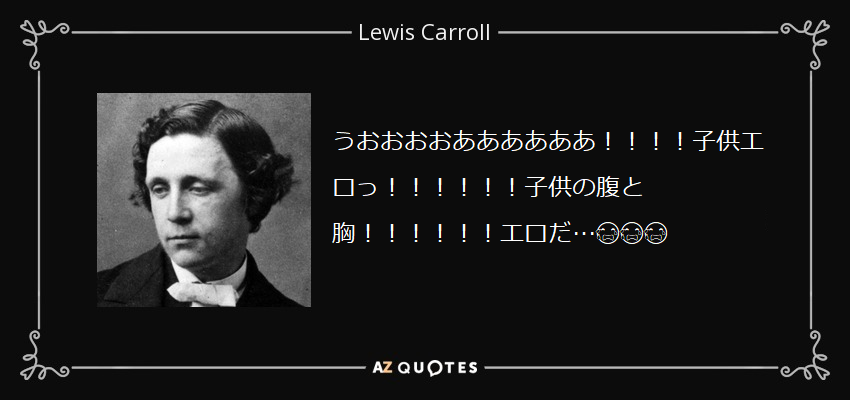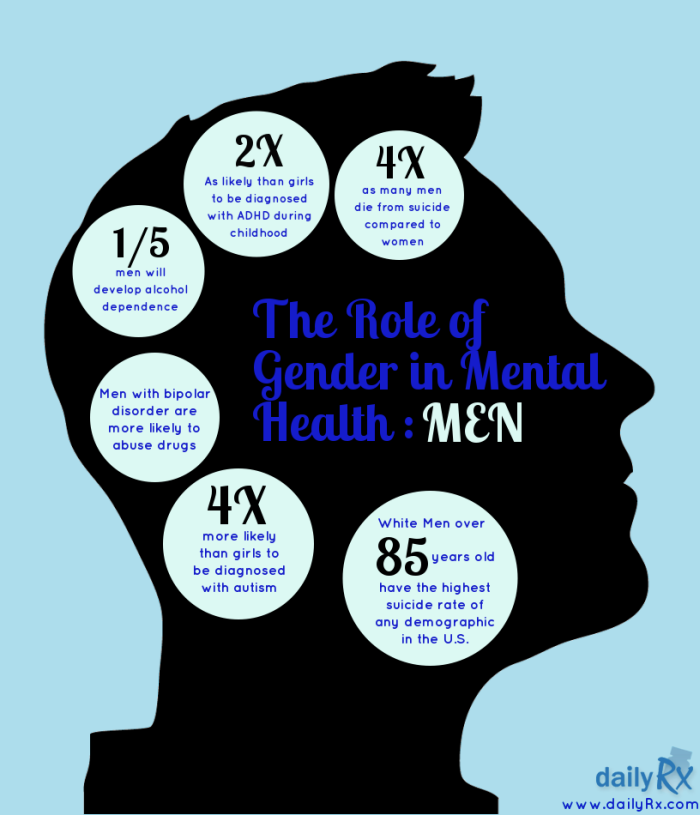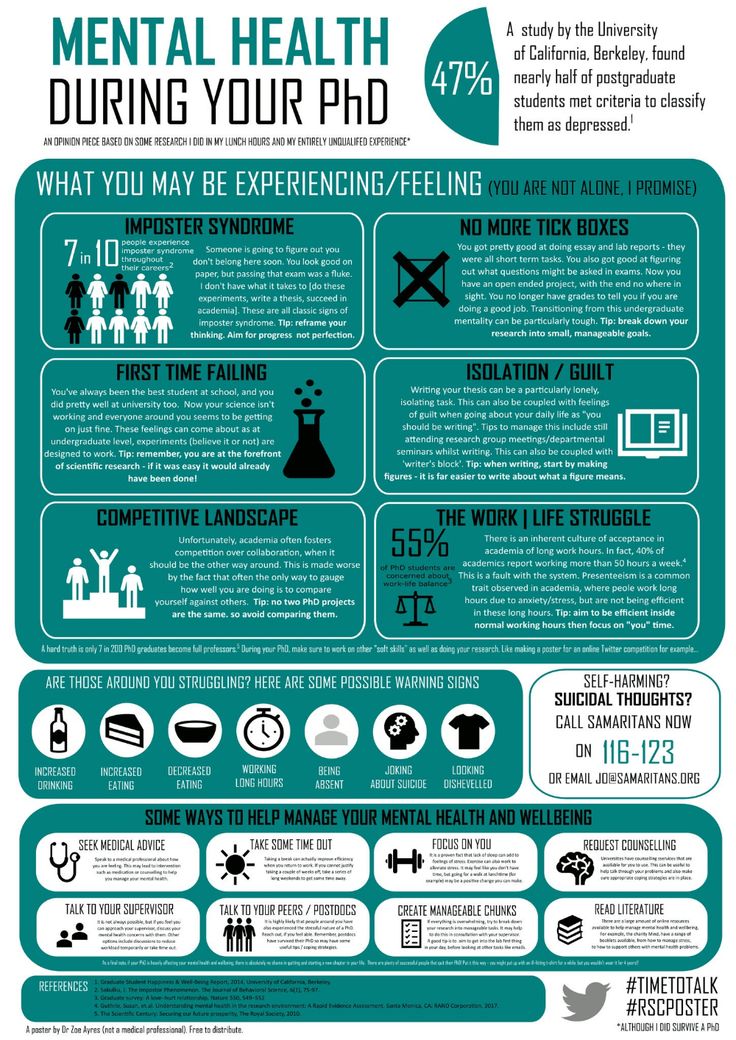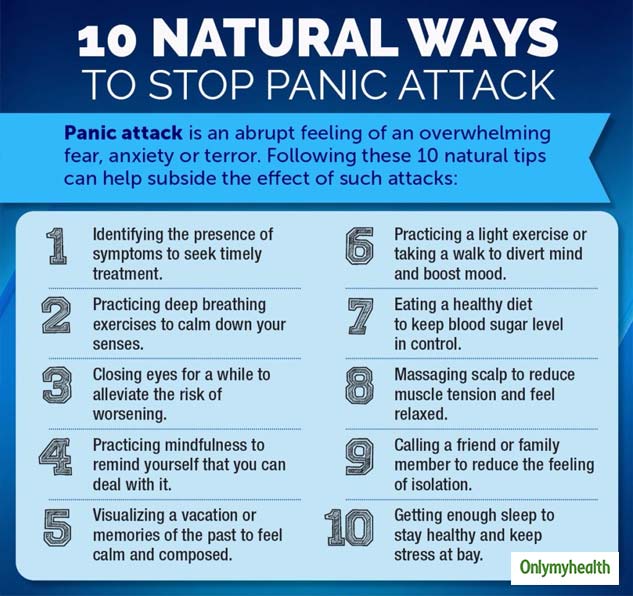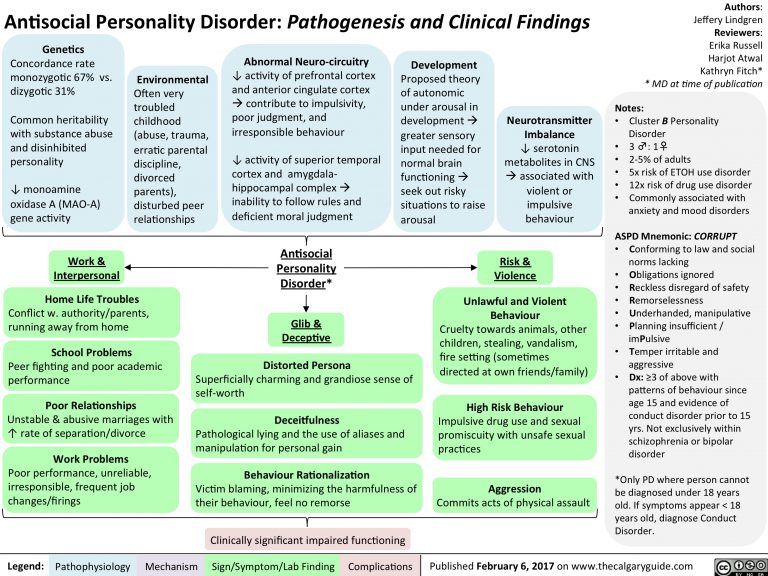Feel full but still hungry
Why It Happens and What to Do
There are several reasons why some people feel hungry after a meal.
Meal composition
For starters, it could be due to the nutritional composition of your meal.
Meals that contain a greater proportion of protein tend to induce greater feelings of fullness than meals with greater proportions of carbs or fat — even when their calorie counts are similar (1, 2, 3).
Numerous studies have shown that higher protein meals are better at stimulating the release of fullness hormones, such as glucagon-like peptide-1 (GLP-1), cholecystokinin (CCK), and peptide YY (PYY) (4, 5, 6).
Also, if your diet lacks fiber, you may find yourself feeling hungry more often.
Fiber is a type of carb that takes longer to digest and can slow your stomach’s emptying rate. When it’s digested in your lower digestive tract, it also promotes the release of appetite-suppressing hormones like GLP-1 and PYY (7).
Foods that are high in protein include meats, such as chicken breast, lean beef, turkey, and shrimp. Meanwhile, foods that are high in fiber include fruits, vegetables, nuts, seeds, and grains.
If you find that you’re hungry after a meal and notice that your meals tend to lack protein and fiber, try incorporating more protein- and fiber-rich foods into your diet.
Stretch receptors
Aside from meal composition, your stomach has stretch receptors that play a key role in promoting feelings of fullness during and immediately after a meal.
The stretch receptors detect how much your stomach expands during a meal and send signals directly to your brain to induce feelings of fullness and reduce your appetite (8).
These stretch receptors don’t rely on the nutritional composition of food. Instead, they rely on the total volume of the meal (8).
However, feelings of fullness brought on by the stretch receptors don’t last long. So while they may help you eat less during a meal and shortly after, they don’t promote long-term feelings of fullness (8, 9).
If you don’t find yourself feeling full during or immediately after a meal, try incorporating more foods that are high in volume but low in calories (10, 11).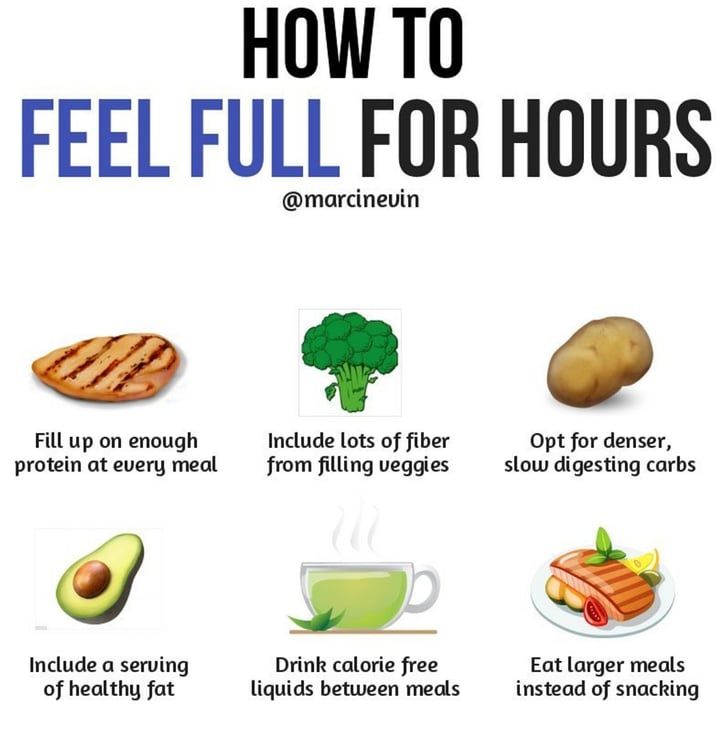
These foods, such as most fresh vegetables, fruits, air-popped popcorn, shrimp, chicken breast, and turkey, tend to have greater air or water content. Also, drinking water before or with meals adds volume to the meal and may further promote fullness (12).
Though many of these high volume, low calorie foods promote short-term, immediate fullness through the stretch receptors, they tend to be high in protein or fiber, both of which promote feelings of fullness long afterward by stimulating the release of fullness hormones.
Leptin resistance
In some cases, hormonal issues may explain why some people feel hungry after eating.
Leptin is the main hormone that signals feelings of fullness to your brain. It’s made by fat cells, so its blood levels tend to increase among people that carry more fat mass.
However, the problem is that sometimes leptin doesn’t work as well as it should in the brain, especially in some people with obesity. This is commonly called leptin resistance (13).
This means that although there’s plenty of leptin in the blood, your brain doesn’t recognize it as well and continues to think that you’re hungry — even after a meal (14).
Though leptin resistance is a complex issue, research suggests that getting in regular physical activity, reducing sugar intake, increasing fiber intake, and getting adequate sleep may help reduce leptin resistance (15, 16, 17, 18).
Behavioral and lifestyle factors
Aside from the key factors above, several behavioral factors may explain why you feel hungry after eating, including:
- Being distracted while eating. Research suggests that people who eat distracted feel less full and have a greater desire to eat throughout the day. If you usually eat distracted, try practicing mindfulness to better recognize your body’s signals (19, 20).
- Eating too quickly. Research suggests that fast eaters tend to feel less full than slow eaters due to a lack of chewing and awareness, which are linked to feelings of fullness.
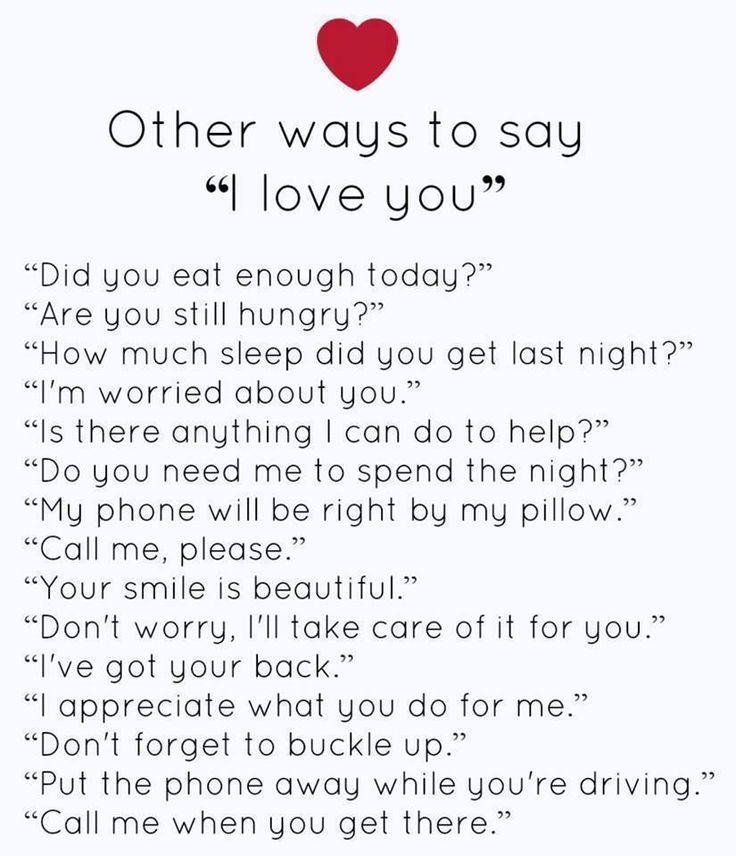 If you’re a fast eater, aim to chew your food more thoroughly (21, 22).
If you’re a fast eater, aim to chew your food more thoroughly (21, 22). - Feeling stressed. Stress raises the hormone cortisol, which may promote hunger and cravings. If you find that you’re often stressed, try incorporating yoga or meditation into your weekly routine (23).
- Exercising a lot. People who exercise a lot tend to have greater appetites and faster metabolisms. If you exercise a lot, you may need to consume more food to fuel your workouts (24).
- A lack of sleep. Adequate sleep is essential for regulating hormones, such as ghrelin, levels of which tend to be higher among sleep-deprived people. Try setting a healthy sleep routine or limiting blue light exposure at night to get adequate sleep (25, 26).
- Not eating enough food. In some situations, you may feel hungry after eating simply because you didn’t eat enough during the day.
- High blood sugar and insulin resistance.
 Having high blood sugar levels and insulin resistance can significantly increase your hunger levels (27).
Having high blood sugar levels and insulin resistance can significantly increase your hunger levels (27).
SummaryYou may feel hungry after eating due to a lack of protein or fiber in your diet, not eating enough high volume foods, hormone issues like leptin resistance, or behavioral and lifestyle choices. Try implementing some of the suggestions above.
Feeling hungry is a common problem for many people worldwide.
Often it’s the result of an inadequate diet that lacks protein or fiber. However, it could be due to hormone issues, such as leptin resistance, or your daily lifestyle.
If you often find yourself hungry after eating, try implementing some of the evidence-based suggestions above to help curb your appetite.
Feeling Full and Hungry At The Same Time?
It’s a strange feeling, but one that quite a few people experience from time to time: feeling full and hungry at the same time. Odd as it may seem, it’s known as early satiety, and this article will explore some of the causes behind this phenomenon.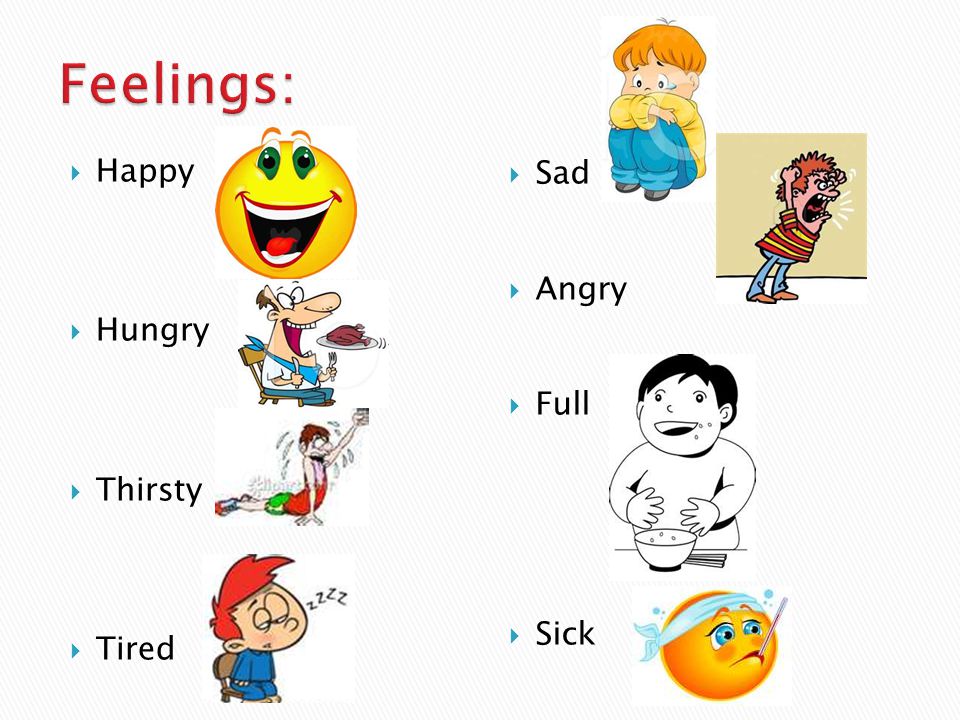
Table of Contents
What Is Early Satiety?Normally, we have a pretty good understanding of what it means to be hungry and to be full. Most people experience hunger after having not eaten for a few hours, and feel themselves getting full as they finish a meal.
However, you might sometimes experience difficulty finishing a normal-sized portion. After just a few bites of food, you may feel full. You might also feel like eating any more could make you feel nauseous.
Feeling like you’re full after eating a tiny amount of food is early satiety. If you have this feeling regularly, you might not be eating enough food to supply energy to your body, which may lead to you becoming malnourished.
Feeling Full And Hungry At The Same Time: SymptomsThere are a few common symptoms that you might feel when you feel full and hungry at the same time, particularly around mealtimes:
- Lack of appetite.
- Nausea.
 This may even make you feel averse to food after just a few bites.
This may even make you feel averse to food after just a few bites. - Stomach pain. Some people may experience a sensation of bloating.
- Vomiting. Eating past a certain amount could make you vomit, even if it’s a regular portion you’re otherwise used to having.
- Constipation.
- Lightheadedness, shakiness, feeling faint. A result of your blood sugar level dropping due to gastroparesis, a condition where the stomach cannot digest food properly and retains it instead of passing it through to the small intestine.
- Heartburn.
There are several causes that can contribute to these symptoms.
Causes of Early SatietyAs mentioned earlier, a common cause of early satiety is gastroparesis, which means partial paralysis of the stomach muscles.
The stomach is a muscular bag that contracts very strongly to crush food, digest it with the help of stomach acid, and pass it along to the intestines for further digestion.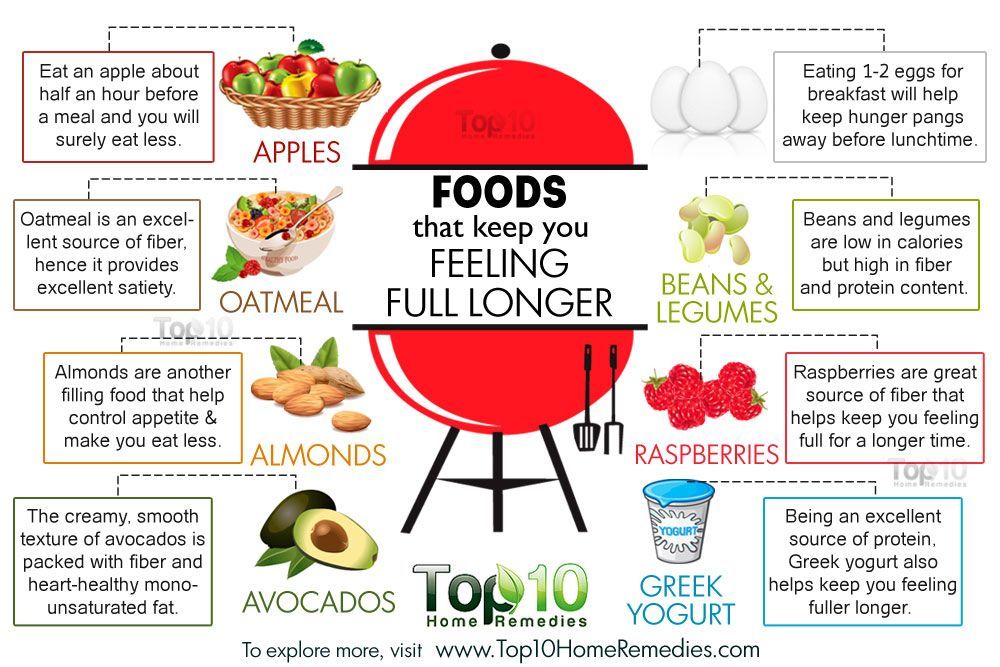 With gastroparesis, though, the stomach can’t perform these contractions normally. This results in food accumulating in the stomach, causing bloating, pain, nausea, and heartburn, among other symptoms.
With gastroparesis, though, the stomach can’t perform these contractions normally. This results in food accumulating in the stomach, causing bloating, pain, nausea, and heartburn, among other symptoms.
Gastroparesis is common in people with long-term diabetes, but it can sometimes occur due to:
- nerve injury
- viral infections
- specific antidepressants
- narcotic medications
- complications arising after gastric surgery.
Finally, some other causes for early satiety include ulcers in the stomach lining. These peptic or gastric ulcers can cause stomach pains, ultimately decreasing your appetite and leading to a feeling of fullness after only a few bites.
Conclusion: Visit a Doctor For A DiagnosisSo, if you’re feeling full and hungry at the same time, it’s a good idea to visit a doctor, especially one that specializes in gastrointestinal tract disorders.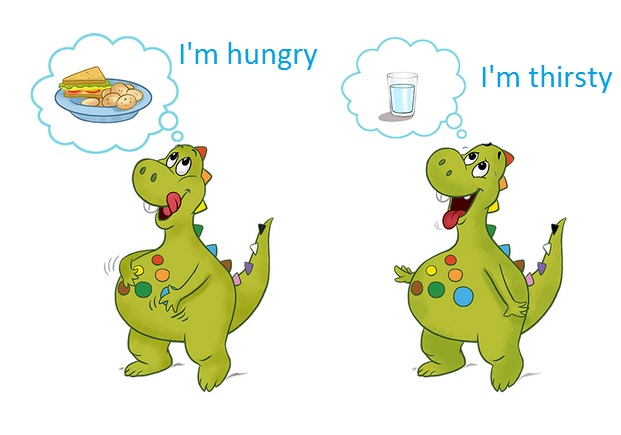 A GI specialist will be able to diagnose your symptoms and give you an appropriate treatment.
A GI specialist will be able to diagnose your symptoms and give you an appropriate treatment.
This post is brought to you by Octagos Health. We provide remote event monitoring software solutions for cardiac patients and providers. For a demonstration or any questions, call us today at (281) 769-8733.
how the brain makes us eat
Michael Graziano, neuroscientist, professor at Princeton University and author of The Science of Consciousness. The Modern Theory of Subjective Experience, believes that the problem of gaining excess weight and the desire to "eat something else" does not hide in an empty stomach and is not as strongly associated with blood sugar levels as we used to think. It is in our head, in our mind, and it is there that we must look for a way out of the problem of overeating. We publish an abbreviated translation and adaptation of the scientist's article in the journal
Aeon , in which he analyzes the phenomenon of "hungry mood". One day I decided to try my hand at solving the great problem of our time - how to lose weight without effort - and conducted an experiment on myself.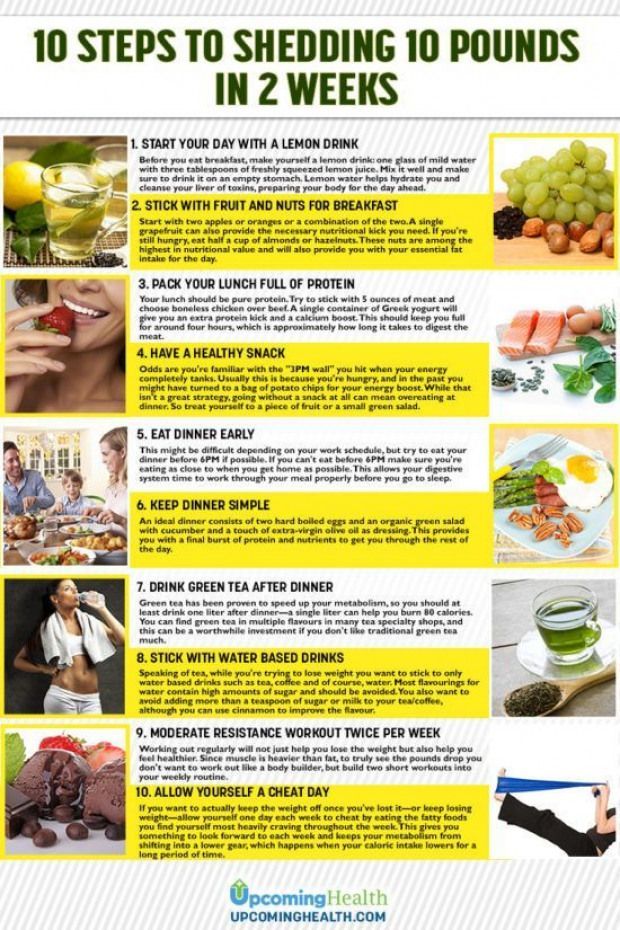 Eight months later, I was 22 kilos lighter, so it seemed to work, but my approach to the problem was different from what I was used to. I am a psychologist after all, not a doctor, so from the very beginning I suspected that weight management was a matter of psychology, not physiology. If weight depended on the number of calories consumed and expended, we would all walk at the weight that we chose for ourselves. We all know the “just eat less” principle, and it seems that following it, losing weight should be no more difficult than choosing the color of a shirt. And yet, for some reason, it's not. […]
Eight months later, I was 22 kilos lighter, so it seemed to work, but my approach to the problem was different from what I was used to. I am a psychologist after all, not a doctor, so from the very beginning I suspected that weight management was a matter of psychology, not physiology. If weight depended on the number of calories consumed and expended, we would all walk at the weight that we chose for ourselves. We all know the “just eat less” principle, and it seems that following it, losing weight should be no more difficult than choosing the color of a shirt. And yet, for some reason, it's not. […]
Hunger is one of the motivated states of mind, and psychologists have been studying these states for at least a century. We all feel hungry before dinner and full after a banquet, but these moments are just the tip of the iceberg. Hunger is a process that is always with us, it runs in the background and only occasionally awakens in consciousness. Hunger is more like a mood. When it slowly builds or recedes, even when it is out of consciousness, it changes and influences our decisions, distorts our priorities and emotional investment in long-term goals. It even changes our sensory perception, and often quite dramatically.
It even changes our sensory perception, and often quite dramatically.
You sit down to dinner and say: “Why is this hamburger so tiny? Why did they have to be made so small? I need to eat three to be full" - and this is nothing but a "hungry mood" that makes the food on your plate smaller. After you have eaten, the exact same hamburger will look huge. And it's not just about food - your own body is also distorted. When your “hungry mood” rises, you feel a little leaner, you know the diet is working, and you can allow a little self-indulgence. As soon as the feeling of satiety sets in, you feel like a whale.
Moreover, even memory can be distorted. Let's say you keep a journal of everything you eat. Is he trustworthy? It's entirely possible that not only have you grossly underestimated the size of your meals, but you've almost certainly forgotten to write them down. Depending on the size of your hunger, you can eat three pieces of bread, and after dinner, it is quite sincere to remember only one. It's no wonder that most of the calories people consume come from snacking between meals, but when you ask people about it, they deny the impact of snacking. And they are surprised to find out how much they actually eat during them.
It's no wonder that most of the calories people consume come from snacking between meals, but when you ask people about it, they deny the impact of snacking. And they are surprised to find out how much they actually eat during them.
The "hungry mood" is difficult to control because it operates outside of consciousness. Maybe that's why obesity is such an intractable problem.
"Hungry mood" is controlled by the brainstem, and the part most responsible for regulating hunger and other basic motivated states is called the hypothalamus and is located in the lower part of your brain. There are sensors in the hypothalamus that literally taste blood. They measure fat, protein, and glucose levels, as well as blood pressure and temperature. The hypothalamus collects this data and combines it with sensory signals that filter through other brain systems - about intestinal fullness, sensations, taste and smell of food, type of food, even about the time of day and other related circumstances.
Given all this data, neural circuits are gradually learning our dietary habits. This is why we get hungry at certain times of the day - not because of an empty stomach, but because of a complex neural processor that anticipates the need for additional nutrition at that time. If you skip a meal, you will feel acutely hungry at first, but then you will feel less hungry again as your usual meal time passes. That's why we get full at the end of the meal, again, not because of satiety. And if this is your only signal, then you are overeating a lot. Paradoxical as it may sound, there is a healthy gap between feeling full and being physically full.
Psychological satiety is a feeling of sufficiency resulting from much more complex calculations. In effect, the hypothalamus is saying, “You just ate a hamburger. From past experience with hamburgers, I know that after about two hours, the level of protein and fat in the blood will increase. Therefore, in anticipation of this, I will now turn off your hunger. ” . The system learns, anticipates and regulates, it works in the background, and we can consciously intervene in these processes, but usually not very effectively.
Let's say you decide to reduce your calorie intake and eat less throughout the day. Result? It's like grabbing a stick and poking a tiger with it. Your “hungry mood” will rise, and you will eat more and snack more over the next five days—perhaps only vaguely aware of it. People tend to judge how much they have eaten based on how full they feel after eating. But because this feeling of satiety is partly psychological, when your "hungry mood" is up, you may eat more than usual, but feel less full and mistakenly think you've cut back on food. You may feel like you are making progress. After all, you are constantly vigilant about your nutrition. Of course, you make mistakes from time to time, but you return to the right path again and again. You feel good until you step on the scale and notice that your weight is not responding. One fine day, it can decrease, and the next two days it can jump sharply. Dancing beneath the surface of consciousness, the "hungry mood" distorts your perceptions and choices.
One fine day, it can decrease, and the next two days it can jump sharply. Dancing beneath the surface of consciousness, the "hungry mood" distorts your perceptions and choices.
I don't deny physics. If you eat fewer calories, you will lose weight, but if you explicitly try to cut them down, you will most likely do the exact opposite. After all, if you burn calories in the gym, you will definitely lose weight, right? Yes, except that after a workout, for the rest of the day, you are so exhausted that you can actually burn fewer calories than you would on a normal non-sporting day. Moreover, by completing the workout, you get rid of guilt, your emotional tension goes away, and you reward yourself with a chocolate bun. Yes, you can try to be nice and refuse treats, but the exercises you just did increase your subtle hunger, and now you don't even notice how much you overeat. There is more food, but it seems that less.
Source: Amy Shamblen / unsplash.com
Let's say you've tried all the standard advice and all the existing diets.
Some of them might even work for a short time before you lose your way and end up making even more money than before. After a while, you begin to doubt your willpower. After all, if the prevailing medical theory is correct, if weight is a matter of calorie control, then your problem is a weak character. Being overweight is your own fault, this is the message that is spreading from all sides through our culture.
However, cognitive control is much more subtle, complex, and limited in its scope than the usual notion of willpower. Moreover, it is false and harmful to mental health. What does the concept of willpower do? Opposes long-term rewards to short-term rewards, and sooner or later you go astray. Every time you fall, you deal more damage than you can undo, and therefore fail to realize how much you are sabotaging your own efforts.
What does it lead to? To the fact that in the end you find yourself completely demoralized and depressed. You can do whatever you want, but for some reason you can't handle the weight loss and fall into a catastrophic spiral.
After all, if you're going to be miserable anyway, you can indulge yourself. Food at least alleviates suffering. You fall into the habit of eating, start self-medicating with food, form an addiction and lose all motivation. You fall into the deepest part of the psychological swamp, where your chances of recovery are slim. […]
Most doctors, trainers and healthcare professionals think of weight in terms of chemistry - calories in vs. calories out. Eat less, exercise more. Some schools of thought argue that all calories are equivalent, others that calories from fat are especially harmful, or that calories from carbohydrates should be especially avoided. But all these approaches focus on how calories are digested and distributed in the body, they ignore psychology. Most studies view the psychology of hunger as an inconvenience. […]
However, the obesity epidemic is not a problem of calories or willpower, it is a problem of poisoning the normal regulatory system
We have a complex and finely calibrated system that has evolved over millions of years to do its job well.
It should run in the background without any conscious effort, but for more than two-thirds of us, it doesn't. What are we doing to ourselves that we violate the system of hunger and satiety?
Experimented on myself for about a year - and ate the same thing every day to establish a constant baseline of nutrition and hunger. I measured weight, waist circumference and wrote down everything I could think of. Then I changed one thing in one meal and over the next few days watched for its tiny irritant effect. When the measurements returned to the original level, I tried a new replacement - after a while I was able to average many indicators and observe how the pattern manifested itself. Of course, I had no illusions about discovering something new, my experiments are not formal science, the sample consists of only one person. My task was only to find out which of all the conflicting advices resonated with my personal data. What should I believe?
As usual, the most instructive part of the experiment was the random observation.
It doesn't matter if certain foods have increased or decreased my weight, I have noticed that certain activities increase or decrease my hunger levels. I knew when my "hungry mood" was going up, even if I didn't consciously feel it, because somehow I ended up at lunch earlier than usual. […] When my "hungry mood" went down, the list of priorities shifted and I immersed myself in my work - somehow I was delayed with lunch for an hour. […]
Three bad habits consistently increased my hunger: I call them the ultra-high-death-carb diet, the low-fat craze, and the calorie-counting trap. We get up in the morning and eat a sandwich, porridge, or carbohydrate-packed cereal. Then we go to lunch. Let's say I don't have healthy habits and I eat fast food, lunch from McDonald's. We think of it as a fatty food, but in addition to fat, there is a bun in a burger, and ketchup is a sugar paste. […] Maybe you feel morally superior and prefer a "healthy" lunch - a sandwich, mainly consisting of bread.

An afternoon snack is a sweet coffee and a biscuit or muesli bar, which also contains only carbohydrates. Maybe you eat a banana, but that doesn't make much of a difference. Dinner? Filled with potatoes, pasta, rice and bread. We think we eat seafood when we order sushi, but it's mostly rice. Maybe you will choose a good healthy soup - it has noodles or potatoes. And every meal is accompanied by soda, juice, iced tea or other sweetened beverage. Then dessert. Then a snack before bed. In general, you understand.
You can't walk through a supermarket without being attacked from all sides by carbohydrates. And yes, some people talk about the superiority of complex carbohydrates over refined sugar, and they are right. But even if you cut out refined sugar, the amount of carbs is still amazing. A diet high in deadly carbohydrates has warped our sense of normalcy.
People who prefer a low carbohydrate diet may be right for the wrong reasons. […] According to this nutritional theory, if you cut out enough carbohydrates, your body will switch from using glucose to using ketones as the main energy-carrying molecule in the blood.
Using ketones, the body will begin to consume its own fat reserves. What's more, by lowering your blood sugar, you lower your levels of insulin, the main hormone that promotes fat storage in the body. Less carbs means less fat. […]
Theory and experiments may be correct, but they miss the most important point - they emphasize how calories are distributed in the body, instead of emphasizing the motivated state of hunger. It would be encouraging to see more research on how different diets affect hunger regulation. It is now well known that a high-carbohydrate diet increases hunger, and a low-carbohydrate diet eliminates this stimulus. Taken together, these data suggest that a low-carbohydrate diet does not help you lose weight because of its effect on energy use—it makes you lose weight because you eat less. Whereas a diet high in deadly carbohydrates fires up the hunger mechanism and your eating goes out of control. […]
Source: Amy Shamblen / unsplash.com
The low-fat craze works the same way.
[…] Don't eat butter. Don't eat eggs. Don't drink whole milk. Remove the skin from the chicken. […] I don't think the medical evidence is completely clear yet, but cutting out fat seems to have led to disaster. As numerous studies have shown, fat reduces the feeling of hunger - remove it, and the "hungry mood" will increase, but the effect will be gradual. Remember, your hypothalamus takes in complex data and learns associations over time. Train him for a few months on a fat-free diet and it will increase your hunger.
But the most insidious attack on the hunger mechanism may be chronic dieting, the calorie-counting trap. The more you try to control your automatic hunger control mechanism, the more you disrupt its dynamics. Skip breakfast, cut calories for lunch, eat a small dinner, keep track of your calories, and you're successfully poking a hungry tiger with a stick. All you achieve by doing this is falling into a vicious circle of willpower and failure. […]
At the end of all my introspection and meditation, it was time to test the theory.
I tried a simple formula. Firstly, I chose a moderately low-carb diet - I cut my carbohydrate intake by about 90% and at the same time did not even come close to a low-carb diet. […] Secondly, I added a little more fat. […] Thirdly, I allowed myself to eat as much as I want at every meal. The last one was the most difficult: when you want to lose weight, it's hard to imagine eating more. I just had to believe in a strange psychological paradox: if I try to eat less, I end up eating more.
I could list my products, but the concept is actually more revealing than the details. My diet had nothing to do with standard health advice and how these foods chemically affect my body. I didn't think about my arteries, or about my liver, or about insulin. This approach was designed to talk to my unconscious hunger control mechanism to encourage it to eat less. And it worked: with a slow weight loss of about a kilogram per week, I gradually got rid of the accumulation of twenty years - 22 extra pounds, which were gone in a few months.

The beauty of the method was that it was effortless (by effort I mean this questionable concept of willpower). […] When hunger mounts, the personal struggle becomes heartbreaking… and the strangest thing is that this struggle is alluring. It can be terrible and counterproductive, but it makes us feel like we're doing something and our society is impressed by hard work. […] It turned out that this self-flagellation was not necessary, I had to put up with the lazy method. […] I just lay back and watched my brain do its thing.
I don't think I'm alone in my experience. Others have tried a similar diet, though perhaps for different reasons. I do not have the goal of advocating one particular diet, all I want to say is this: your weight depends a lot on your psychology, it's all about the "hungry mood". […] Consider this a call for science to focus a little more on the psychology of hunger.
Constant feeling of hunger: what does it mean? | Food
Active physical and mental activity, psychological stress during the day - there are factors that invariably affect our feeling of hunger.
And this is normal - if there is a lot of consumption, stocks need to be replenished, no one has yet canceled self-regulation. But how to understand that the system has failed? We deal with the dietitian Galina Anisenya.
Hunger or appetite?
True hunger is a physiological condition characterized by a decrease in blood glucose levels. Thus, the body gives us a signal that it is time to replenish energy reserves. This feeling should not be deceived - on the contrary, it must be satisfied. Otherwise, if we do not give the body what it asks for, it will be much stronger next time. In a state of so-called "wolf" hunger, a person runs the risk of overeating: without waiting for those 15-20 minutes during which the feeling of fullness comes, he consumes much more than necessary.
If you want to know if it's hunger or appetite, ask yourself a test question: “Am I ready to eat celery or oatmeal with water? Relatively speaking, something tasteless? If so, it's most likely real hunger.

Just add water
You must have heard the phrase “if you want to eat, drink”. A false sense of hunger can occur when the body asks for water. A person, being unable to recognize whether it is hunger or thirst, as a rule, eats something. And since there is water in almost any food, albeit in a small concentration, the body receives it along with extra calories that it did not ask for, but after a short time it asks again.
When you feel hungry, have a drink - and if after 10-15 minutes you feel hungry again, start eating.
"Dangerous" carbohydrates
Simple carbohydrates can also provoke a feeling of hunger - they usually have a high glycemic index (GI) and quickly raise blood sugar levels. In response, insulin is released, and then blood sugar levels drop just as quickly. It is this drop in glucose that is perceived by the body as a lack of carbohydrates and the need to urgently replenish supplies. If we don’t arrange such “swings” - a lot of carbohydrates, very few carbohydrates, the body will say “thank you” and will not ask us for additional meals.

When there is not enough complex carbohydrates in the diet, they need to be replenished. Such a need of the body is quite natural and is most often provoked either by diets, where the amount of carbohydrates is sharply limited, or by active physical activity (especially anaerobic and high-intensity aerobic ones), which involve them in their energy supply.
Frequent fractional meals
A diet will help avoid sudden fluctuations in glucose. Firstly, it is necessary to observe breaks between meals - at least two hours, maximum 4.5 hours. Secondly, eat 10-15 minutes after the onset of hunger and do it slowly. Thirdly, include proteins, carbohydrates, fiber (plus hidden fats, which, most likely, will be there anyway) in every meal.
Imagine a plate and cut it in half. One half should be occupied by fiber, that is, non-starchy vegetables - roughly speaking, lettuce. The second half should contain equally protein (meat, poultry, fish, seafood) and complex carbohydrates, side dishes (buckwheat, brown rice, barley).
The first snack, before lunch, is best made up of berries and fruits - and if we are talking about summer, it is better that these are seasonal fruits. A snack in the afternoon - during an afternoon snack and in the evening - can be sour-milk products or greens with vegetables.
Feeling full
How long does it normally last? When it comes to complex carbohydrates, the feeling of satiety should last at least two hours after eating - this is due to the fact that glucose levels, on average, return to normal two hours after eating carbohydrates. With protein, it can be different - it all depends on its complexity. If it is very complex, such as casein from dairy products or a boiled egg, the feeling of satiety can last up to six hours.
Also, do not forget that baroreceptors are involved in the process of saturation - these are mechanical receptors that respond to pressure and stretching of the stomach and which stably need a certain fixed amount of food.
If you want to “deceive” the body with smaller portions, and in fact not even deceive, but form a new habit, be prepared for the fact that at first it will be uncomfortable. Psychologists say that it takes three weeks for a new habit to form, so that on the 22nd day, when it is fully formed, the baroreceptors will respond to a smaller than usual meal with a feeling of complete satiety.
Hunger and disease
Is it possible that hunger is a signal of some disease? Oh sure. It's not about situations when you want to eat, then you get distracted by something and forget about hunger. If your blood glucose level is consistently low and you have signs of hypoglycemia - cold sweat, pallor, dry mouth, increased thirst, weakness, dizziness, drowsiness, lack of coordination, decreased visual acuity, irritability - you need to look for the cause and be examined. The very first and elementary thing that can be done is to find out the level of glucose in the blood.

